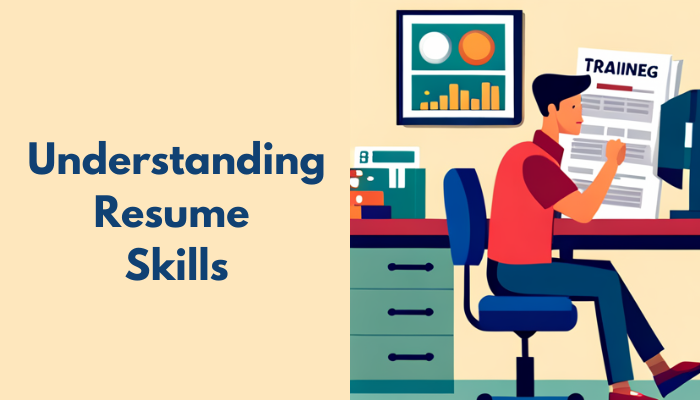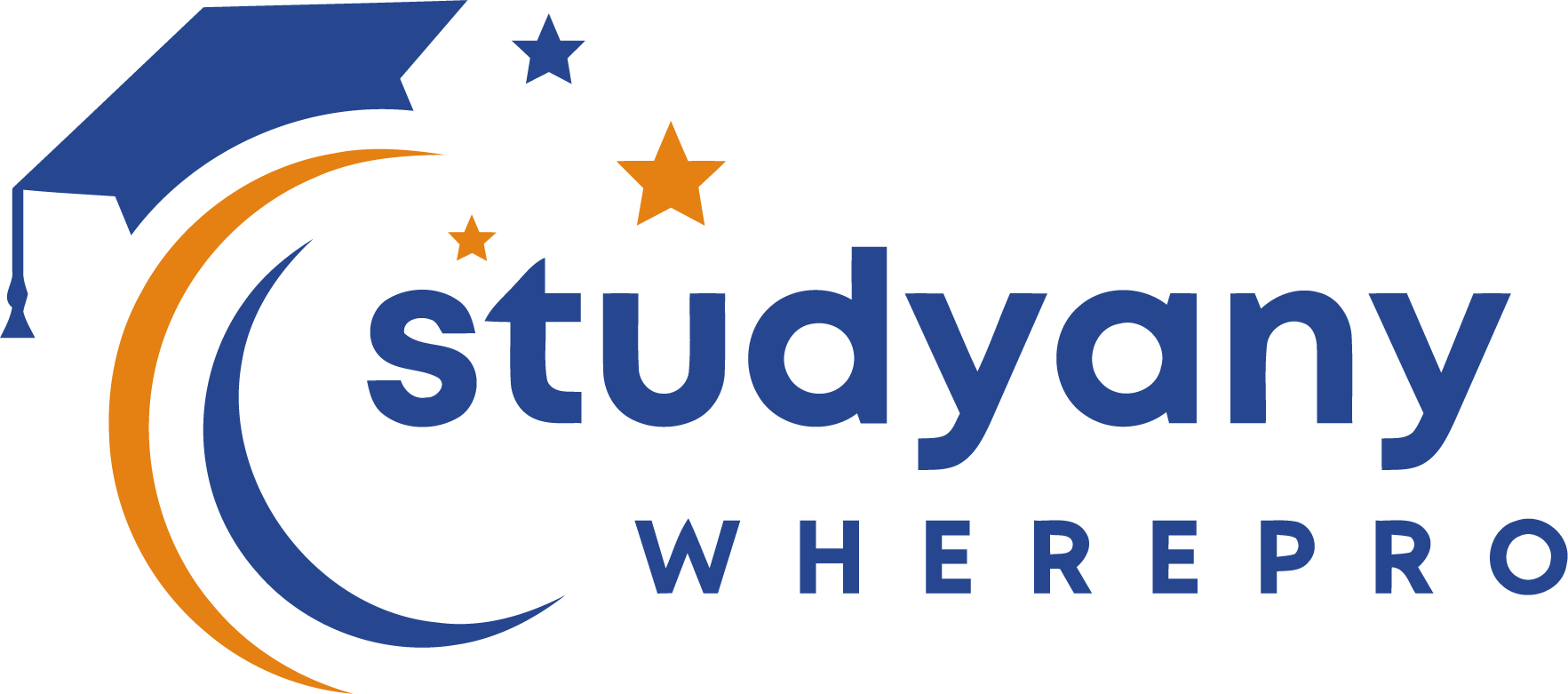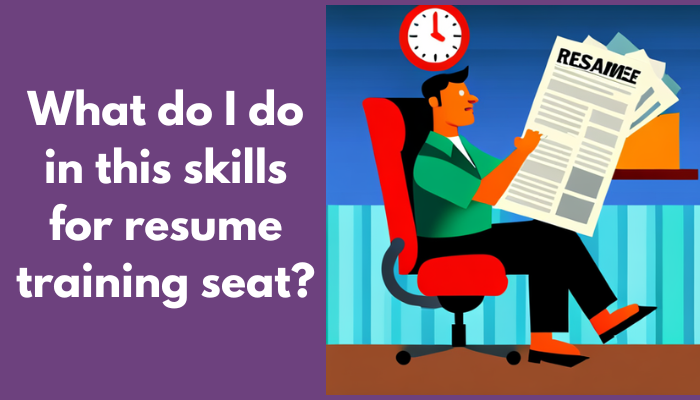Skills for a resume Writing an effective resume is integral in winning over the dream job. But it can be challenging to know what skills you should attempt to highlight. All of the linguists at Linguix have experience reading resumes and can tell you instantly whether it leaves them unimpressed. If your document misses the mark, then prospective employers will simply click onto to next application in line. Considering how many applications most hiring managers receive every day, that could spell disaster for what might otherwise be a positive interview process scenario. Thankfully we’ve compiled this list so mistakes like these won’t happen to you again – read through our best tips below! In this article, we are going to review 11 of the must-have skills you should definitely put on your resume and how it is important and where will be greatest chance for them.

Understanding Resume Skills
| Aspect | Positive | Negative |
|---|---|---|
| Relevance | Ensures that the skills listed are relevant to the job, making your resume more targeted and effective. | Misunderstanding the job requirements can lead to listing irrelevant skills that do not align with the role. |
| Highlighting Strengths | Allows you to emphasize your strongest skills and accomplishments, making your resume stand out. | Overemphasizing skills without providing concrete examples can make your claims seem unsubstantiated. |
| Marketability | Improves your marketability by showcasing skills that are in demand within your industry or field. | Skills that are not in high demand might not add significant value to your resume. |
| Resume Customization | Facilitates customization of your resume for different positions, enhancing your chances of landing an interview. | Frequent changes to your resume might require additional time and effort to tailor each version effectively. |
| Professional Development | Demonstrates your commitment to professional growth and adaptability, appealing to potential employers. | Focusing solely on skill acquisition might neglect other important aspects, such as gaining practical experience or networking. |
But, skills are the most important part in any job. Posted with the title of a job, they are your expertise and what you can do if you played in a particular role. However, you might be wondering what resume skills are and why they matter.
Hard Skills vs. Soft Skills
There are rigid (hard) and soft or flexible skills; consider them both when writing a resume. The first category of skills is hard skills, which are teachable and specific abilities such as software coding or data analysis (for an example), proficiency in a foreign language. Meanwhile, soft skills are social and interpersonal traits like communication teamwork, problem-solving.
Why Employers Value Skills
Employers want the right skills to get the job done. By having the right skills lists in your resume, you can prove that will be a great fit for the role and easily get an idea of what is required both from them (the job) as well as their standpoint.
Well to help you in identifying your key skills
| Aspect | Positive | Negative |
|---|---|---|
| Clarity | Helps you clearly identify and articulate your strengths, making your resume more focused and compelling. | Misidentifying key skills can lead to a resume that does not accurately represent your abilities. |
| Targeted Job Search | Enables you to tailor your job search and applications to positions that match your strongest skills. | Overemphasis on certain skills may limit your job search to roles that are too narrowly defined. |
| Confidence | Boosts your confidence by highlighting your top skills and achievements, helping you present yourself effectively in interviews. | Focusing too much on certain skills may lead to neglecting other important aspects of your professional profile. |
| Professional Growth | Identifying key skills can guide your professional development and learning, helping you focus on areas that will enhance your career. | May lead to frustration if key skills are not aligned with current job market demands or opportunities. |
| Resume and Interview Impact | Strengthens your resume and improves interview performance by ensuring you can discuss your skills confidently and effectively. | If key skills are not backed by relevant experience or examples, they may appear less credible to employers. |
Please go over the job description and select which skills are outlined, meaning these will be your critical skills. Draw out skills you have from being in past situations, both professional and personal that blink with the job description. This step is being required to ensure that your resume gets job-specific and thus, more likely to get shortlisted.
Soft Skills You Need on Your Resume
In any industry, soft skills are vital for almost every job position. They demonstrate that you can be a team player, and mesh well within different work environments.
Communication Skills
Great communication is more valuable than gold in any workplace. This includes verbal and written communication, along with listening. If you emphasize your communication skills, for example, this will tell the interviewer that in addition to being technically competent and a good listener who can relay information well and collaborate with team members.
Teamwork and Collaboration
At work, there has never been a more crucial time for teamwork. These employers will appreciate you working well with others and supporting the work force as part of a team. Talking about your teamwork capability is a great way to illustrate you can be collaborative.
Problem-Solving Abilities
This tells us that you are able to be effective in the face of a challenge, by solving problems. All employers are looking for this ability of yours, as it shows you can think on your feet at crunch time and take rational decisions.
Key Hard Skills to Keep in Mind
Hard skills can directly be related to the job and industry, they are developed through education, training or on-the-job experience.
Technical Proficiency
Obviously, technical proficiency is a requirement for tech and engineering jobs. This may include anything from programming languages (such as Python or Java), to specific software usage (Adobe Creative Suite, Microsoft Office) b skills with certain tools such as AutoCAD, Salesforce.
Data Analysis Skills
With the increasing data in this world, Data analysis and its interpretation will only level up one’s gameplay. In many cases, knowing even just the basics of Excel or dabbling in SQL can make you a competitive candidate because companies that want to hire writers increasingly value those with data analysis skills.
Project Management
Need to have project management skills for coordinating tasks; setting timelines, and overall ensuring the success of a particular task. These skills consist of a knowledge in some project management software (i., budgeting, scheduling etc.)
Customising onto the Job Description
It is an important part of the application process to customize your resume so it fits what they are looking for. The tactic involves emphasizing the ones that are most related to the position.
Analyzing the Job Description
Read through the job posting to determine what skills and qualifications are important for that specific role. Take note of any requirements or preferences stated.
Align Your Skills With the Role
After you identify the key skills in this job description, connect them with your own set of skill and experiences. Reiterate the Terms and Phrases Employed in a Job Description to Explain What Exactly You Are Qualified For
Example That Demonstrates Your Skills
You may have a great arsenal of skills, but writing them out is not enough. This may include things like specific projects you helped complete or accomplishments which show proof of your abilities.
Structuring Your Skills Section
The format of your resume can play a crucial part in making sure employers find and read about all the skills you want to put on it. It is a well-strucutred skills section area that can make some considerable difference.
Choosing the Right Format
There are a few ways to structure your skill set on your resume. You can go for a simple list format or an even more in-detail bulleted form with examples or as per your preference you could divide then into hard and soft skills.
Using Keywords Effectively
Create a Skills section including the keywords for which employers are looking. It is ATS friendly and demonstrates clearly to human eyes that you have those skills.
Showcasing Your Top Skills
Make sure you highlight your most pertinent skills at the beginning of this section to get seen post-toast. This allows employers to more rapidly ascertain your suitability for the position.
Work Experience that Demonstrates Skills
The work experience section is another chance for you to showcase your skill. This is where you should use a section to provide specific examples of how your skills have come into play in the past.
Crafting Strong Bullet Points
Be bold with action verbs and refer specifically to your contributions when describing what you have actually done. Instead of “kalamazoo dos”, try to say, for example: AMBASSADOR OF A NEW MARKETING STRATEGY DEVELOPMENT –(managed a team of five)
Quantifying Your Achievements
Do your best to include numbers in a manner that reflects the context and scale you are working with For example: telling employers “increased sales by 20%” or “managed a budget of $50,000” paints an image in their mind regarding your impact
Linking Skills to Job Duties
Attach your skills directly to the duties and accomplishments of your job. This can also help build your position about how those skills are for that specific job.
Using Transferable Skills
Worked in multiple roles and Different industries. – Transferable Skills Especially if you are looking to change careers/industries.
Pinpoint Your Sellable Attributes
Take a look at your previous job history to realize the kind of skills that are transferable across several sectors. This can be new skills such as time management, leadership and being flexible.
Highlighting Skills that are Transferable
Include transferable skills in both your Skills Section and Work Experience. Give examples of how they have proven useful in a few diverse businesses or roles.
The relevance of Transferable skills
Employers like these skills because they point to an ability of learn new tasks fast and be flexible. If you have these skills, make sure to add them.
Benefits of Professional Certifications
Adding professional certifications to your resume proves that you are truly dedicated to advancing within the industry and have taken concrete steps towards building expertise in particular areas.
Some of the Most Sought for Certifications
Different certificates can be beneficial on your resume depending upon the line of work. For instance, PMP for project management or CFA for finance and Google Analytics in case of digital marketing etc.
How to showcase Certifications in Resume
Create a separate certification section in your resume. Certification NameIssuing OrganizationCompletion Date
The Value of Certifications
These qualifications can differentiate you from the competition by proving that you know exactly what to do in your field of expertise. They can also show your commitment to ongoing education.
How Volunteer Work Adds to Your Resume
Whether or not you include volunteer work in your resume is a personal decision – it can definitely be beneficial for the right role if relevant skills are involved, career goals align and thus rounded out by the fact that your intention to help those less fortunate than yourself carries with it goodwill motive at no direct gain.
Choosing Applicable Volunteer OpportunityThese days
Select all the experiences you think are most relevant to this job position based on volunteer experience. Seek out opportunities for growth in areas where you expanded or showed movement capabilities.
How to Explain Your Volunteer Work
Volunteering like it is a job. Your role, organization and any special accomplishments or responsibilities you had
The Impact of Volunteer Work
Volunteering shows your community involvement and willingness to put in extra effort. It also shows your skills in a realistic form of work.
Part of this, is education in evidence gathering skills
| Pros | Cons |
|---|---|
| Enhanced Analytical Ability | Time-Consuming: Developing strong evidence gathering skills requires a significant investment of time. |
| Improved Decision-Making | Complexity: Evidence gathering can be complex and may require advanced training to master effectively. |
| Stronger Resume and Job Applications | Potential Overemphasis: Focusing too much on evidence gathering might overshadow other important skills or experiences. |
| Better Problem-Solving Capabilities | Resource Intensive: High-quality evidence gathering often requires access to specialized resources or tools. |
| Increased Credibility and Professionalism | Niche Application: These skills may be more relevant in specific fields, potentially limiting their general utility. |
Your education can also be a testament to essential skills and capabilities.
Listing Relevant Coursework
Put coursework pertinent to the job segway That is excellent for most graduates who do not have much experience.
Academic Project Highlighting
You may want to list these in your resume if you have worked on large-scale academic projects. What kind of project were you working on and what was your job in this case or event, and a few marketable skills/accomplishments?
The Importance of Education
At the end of the day, work experience is usually more important than your education but it can still be used to prove you meet today’s workforce requirements.
Making the Most of References
References -These are simply another form of proof that you can do what your resume says, but unlike little descriptors after each job mentioning bullet points regarding some general skills or qualifications a hiring manager is likely to read and ignore anyway.
Choosing the Right References
Choose references who can tell about your abilities and how you work. These can be people you have worked with before, either as supervisors of yours peer-level colleagues or mentors.
Preparing Your References
Let your references know you are on the job search and what you have applied for. This would enable them to give credible and constructive feedback.
The Importance of Strong References
Powerful testimonials can solidify the skills and qualifications presented on your resume, also supplying companies with added peace of mind in you aprties.
What do I do in this skills for resume training seat?
| Pros | Cons |
|---|---|
| Skill Development | Cost: Training sessions can be expensive, depending on the provider. |
| Enhanced Resume Quality | Time Commitment: Requires time investment that could be used for other job search activities. |
| Professional Guidance | Generic Content: Some training sessions may offer generic advice that may not be tailored to specific industries or roles. |
| Improved Job Search Strategies | Variable Effectiveness: The quality and effectiveness of the training can vary widely between providers. |
| Networking Opportunities | Overemphasis: Focusing too much on resume skills might lead to neglecting other important aspects like networking or interview preparation. |
FAQ
How do you recognize your Key Skills?
First, you should read the job description and record each of the most-used skills. Think about your past: what you learned and how you applied these skills. Use a skill assessment tool or ask colleagues/ mentors for feedback to get further insights.
Do soft skills deserve a place on your resume?
Communication, teamwork and problem-solving are all important soft skills prized by employers. Make sure you SHOW NOT TELL in your work experience or volunteer sections with examples that prove how good you are at this skill.
Answer: How Many Skills Should You List on a Resume
The key is to: List 5-10 of the most relevant things you know how to do. Showcase only a few key skills with detailed examples of how you used them is better than listing irrelevant ones without evidence.
Am I allowed to add skills that Im currently taking?
Include it directly on your resume or in a cover letter if you are still actively learning the new skill/way of working. Then be brutally honest about your skill level with it and mention any recent projects you’ve done well in or training related to this subject.
Updating Your Resume – How Often Is Too Often?
It is always better to have a resume updated each time you learn something new, clear an exam or obtain any professional experience. Refresh your resume at least every six months to ensure it can be up to date and reflects all of the qualifications and accomplishments you are proud of.
The optimal format of listing skills
Bullet list your skills and break them down into categories, e.g., technical, soft or maybe divided by specific area of knowledge. The idea is to make your qualifications instantly scannable and consumable by any employer.
Do I Have to Tailor My Resume for Every Job?
Sure – tailoring your resume to each job you apply for helps you stand out. Be deliberate in showing off the facts that are most relevant to this particular job.







Your ability to collaborate effectively with the team was key to our success. Great teamwork!
Thank you very much for your feedback
I’m really impressed with your initiative on this task. You went above and beyond to ensure everything was perfect
Thank you very much for your feedback
Your positive attitude and willingness to help others is truly appreciated. It makes a big difference in the workplace
Thank you very much for your feedback
You demonstrated exceptional skills in managing this project. Your leadership was crucial to its success
Thank you very much for your feedback
Your analysis was spot-on. The insights you provided were incredibly valuable and informative
Thank you very much for your feedback